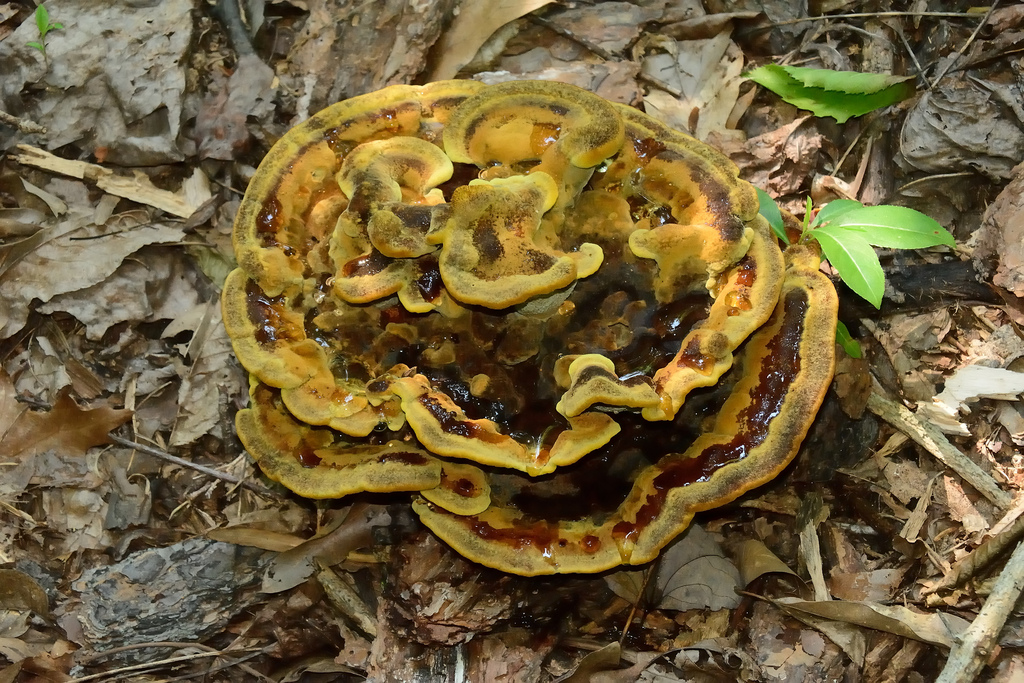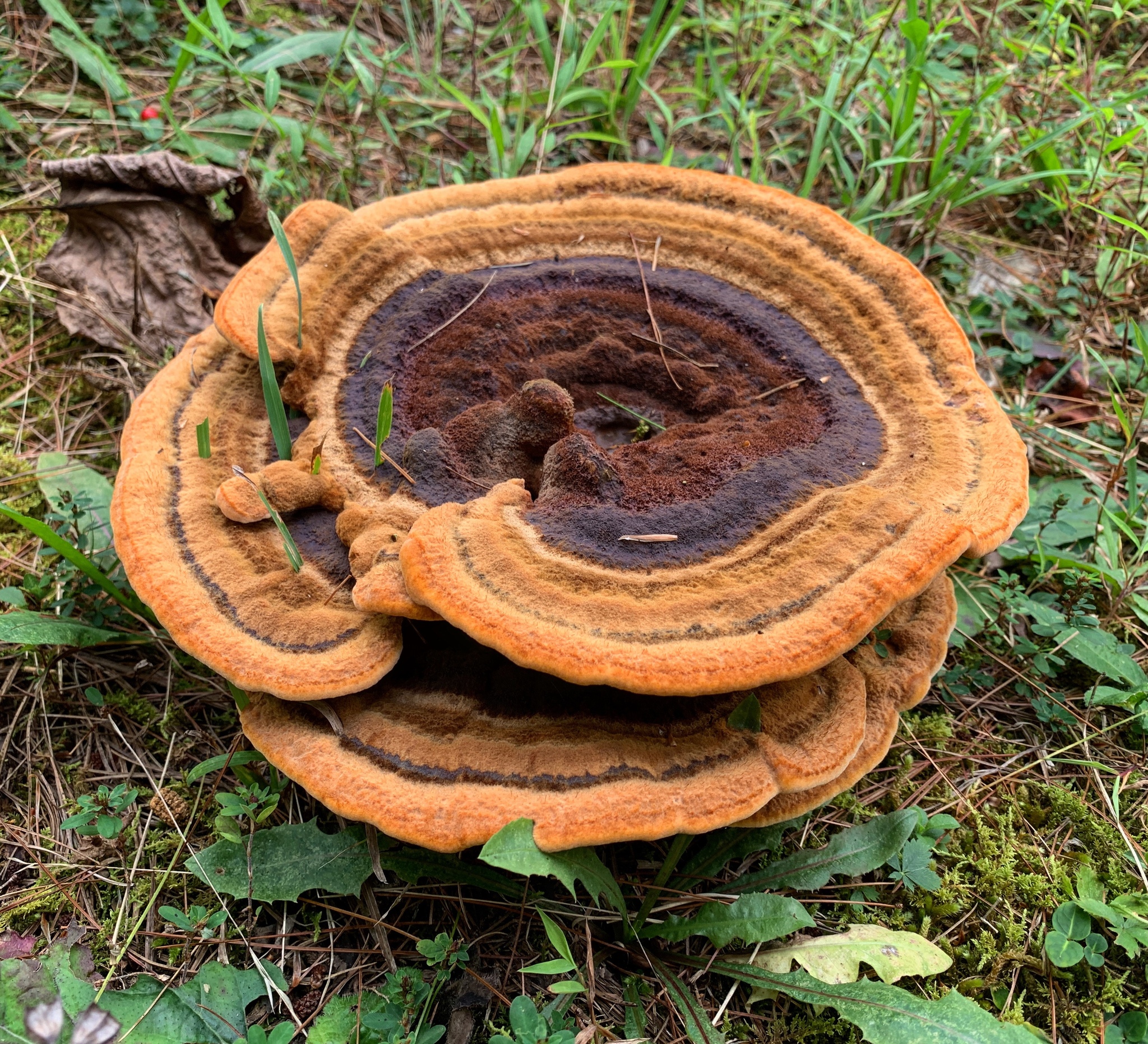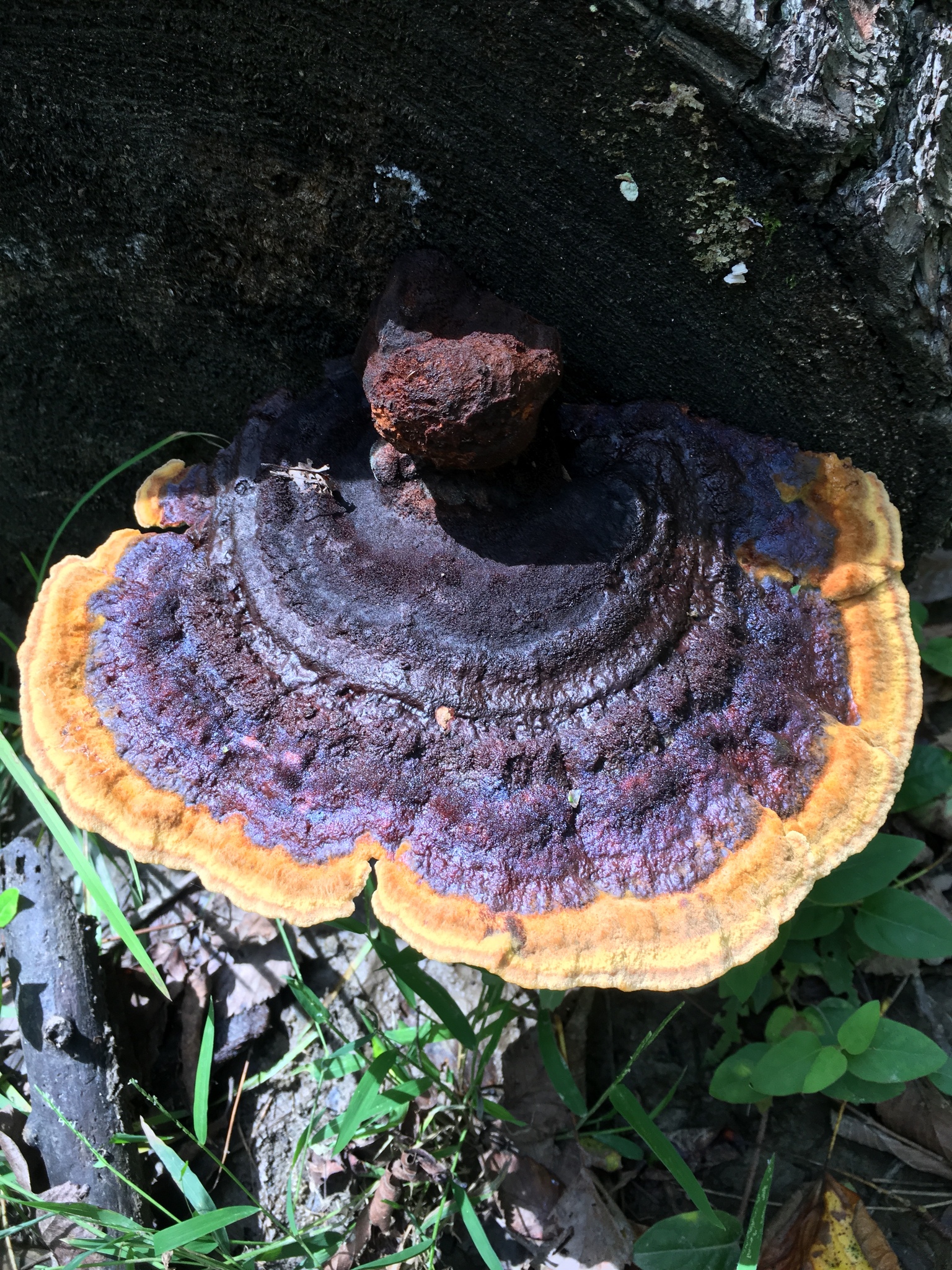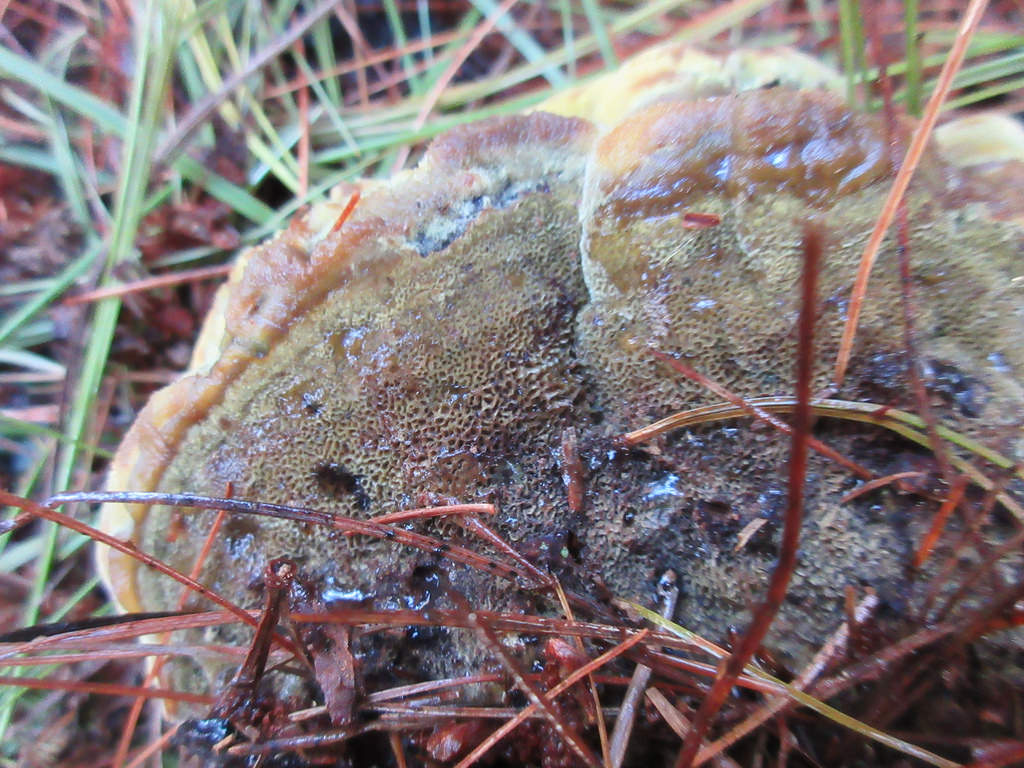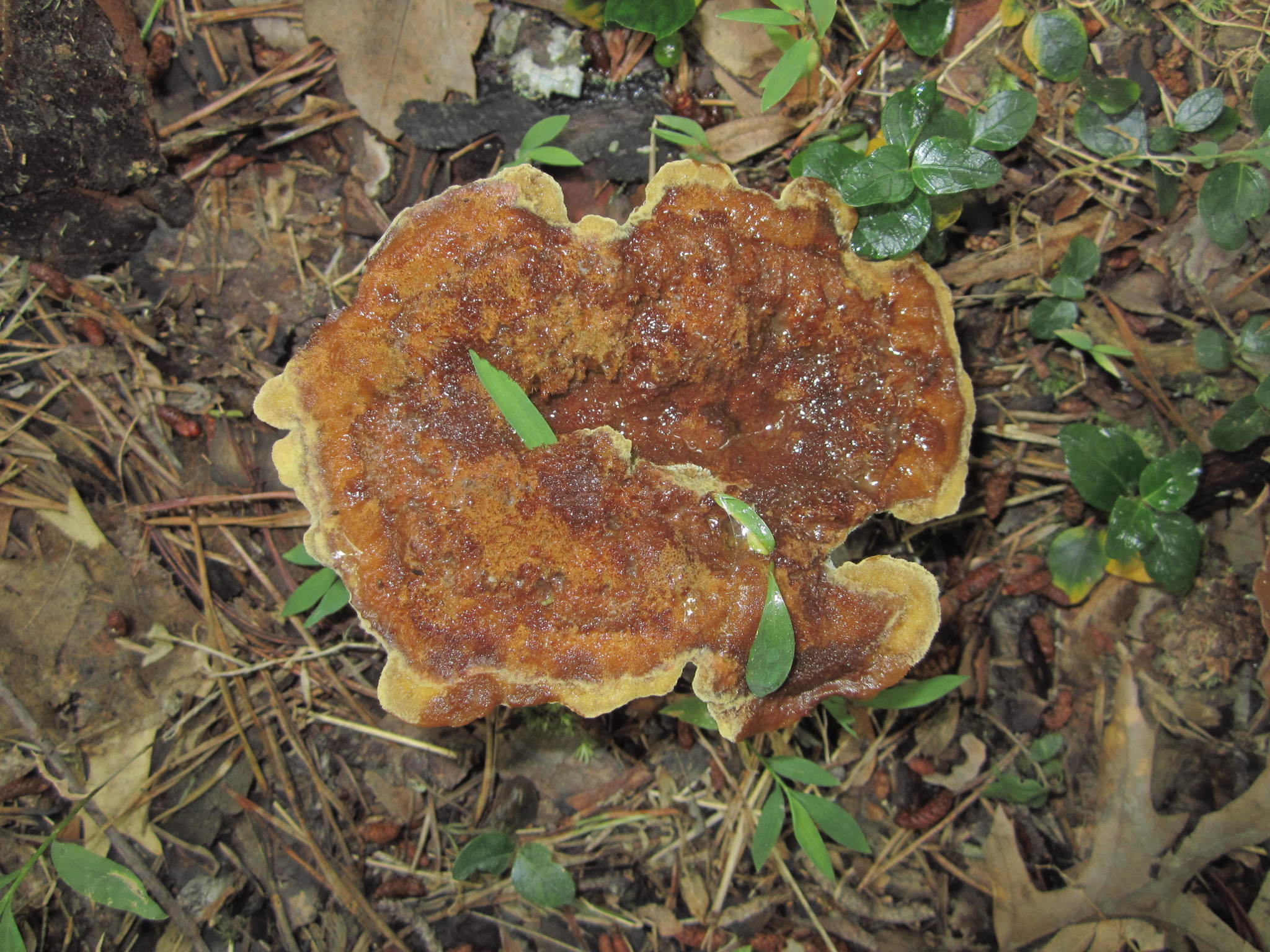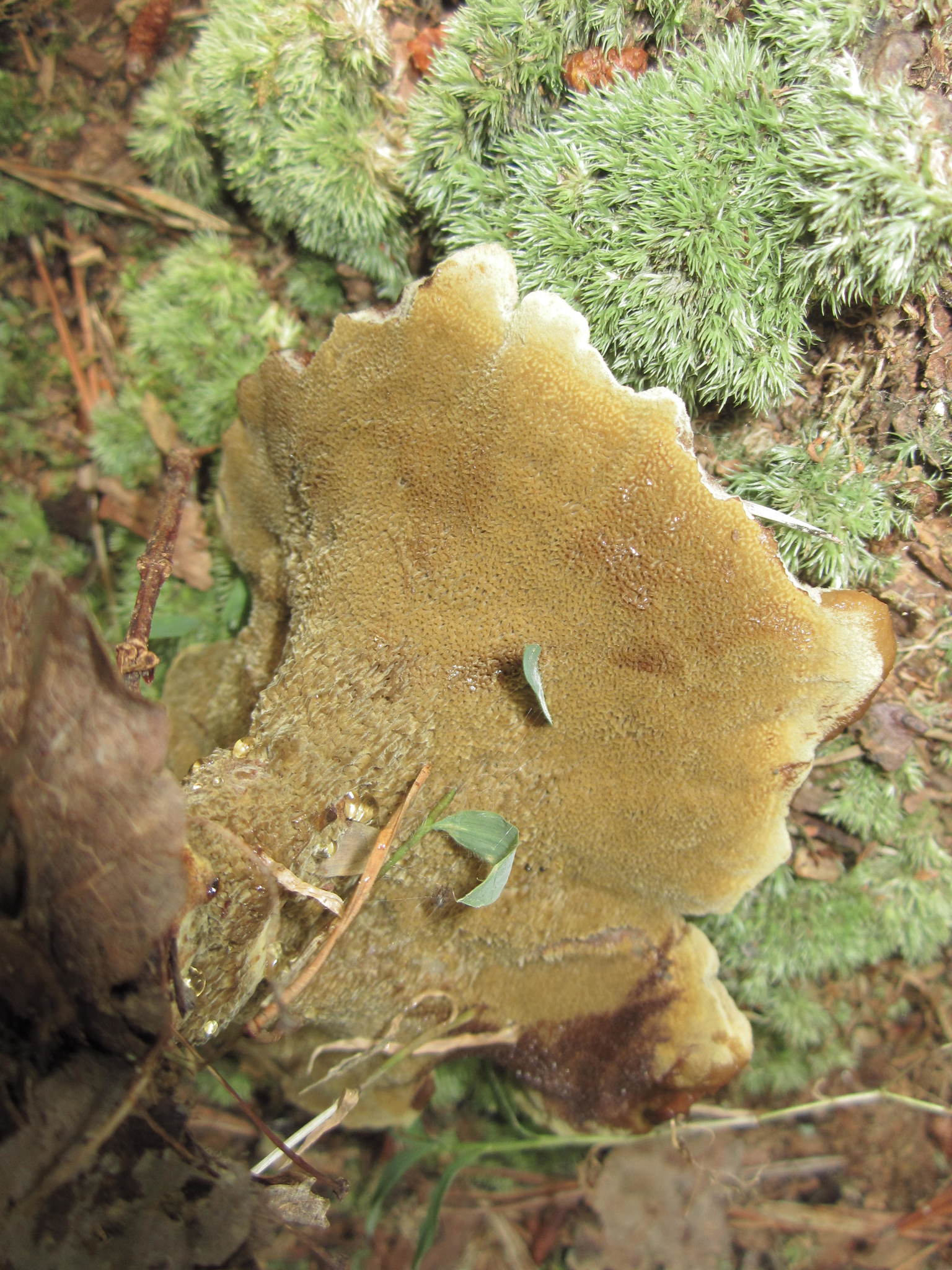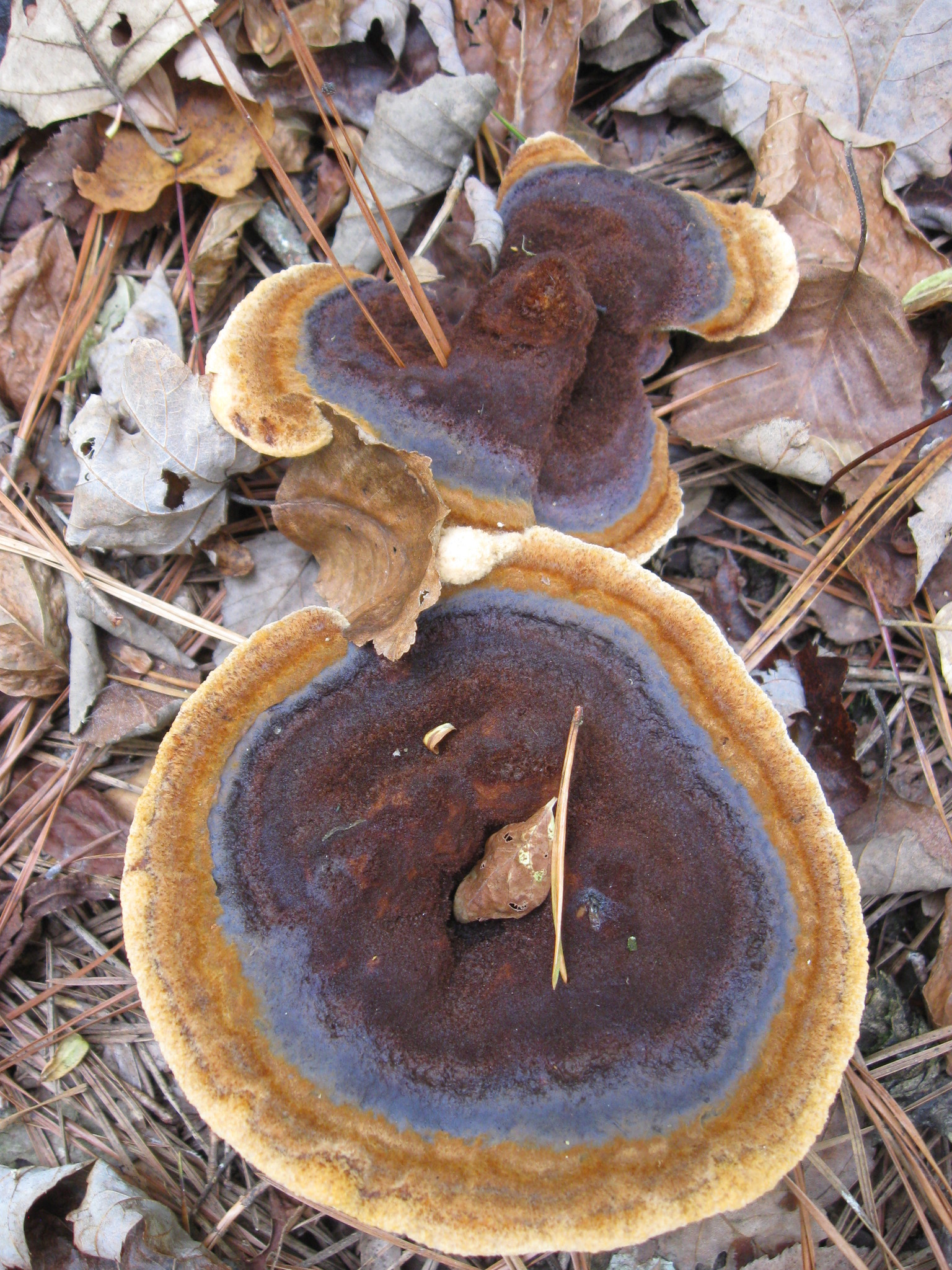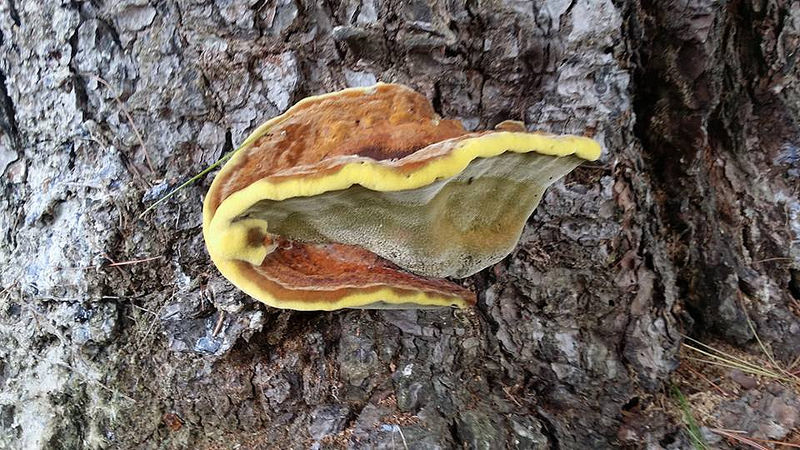Map Snapshot


















60 Records
Relationships
Causes a severe brown rot on pine trees. Used to provide many rich dye colors, including browns, yellows, greens, and gold, depending on the mordant used. (L. Biechele, pers. comm.)
Seasonality Snapshot
Source: Wikipedia
| Phaeolus schweinitzii | |
|---|---|

| |
| Scientific classification | |
| Domain: | Eukaryota |
| Kingdom: | Fungi |
| Division: | Basidiomycota |
| Class: | Agaricomycetes |
| Order: | Polyporales |
| Family: | Phaeolaceae |
| Genus: | Phaeolus |
| Species: | P. schweinitzii
|
| Binomial name | |
| Phaeolus schweinitzii (Fr.) Pat. (1900)
| |
| Phaeolus schweinitzii | |
|---|---|
| Pores on hymenium | |
| Cap is offset | |
| Hymenium is decurrent | |
| Stipe is bare | |
| Spore print is white to yellow | |
| Ecology is saprotrophic or parasitic | |
| Edibility is inedible | |
Phaeolus schweinitzii, commonly known as velvet-top fungus, dyer's polypore, dyer's mazegill, or pine dye polypore, is a fungal plant pathogen that causes butt rot on conifers such as Douglas-fir, spruce, fir, hemlock, pine, and larch.[1] P. schweinitzii is a polypore, although unlike bracket fungi the fruiting body may appear terrestrial[citation needed] when growing from the roots or base of the host tree.[2]
The fruiting bodies, appearing in late summer or fall, commonly incorporate blades of grass, twigs, or fallen pine needles as they grow.[3] They are tannish with darker brown centres, with orange to pale margins on young specimens.[2][4] They may grow beyond 25 cm in diameter.[4] As the fruiting bodies age, the pore surface turns from yellow to greenish yellow, the top becomes darker, and the yellow-brown flesh becomes harder and more wood-like.[3] The pores bruise brown.[2] The spores are white, elliptical, smooth, and inamyloid.[4]
The effect, impact and significance of infection by this fungus is rooted in the fact that it causes brown rot, which degrades the cellulose. Thus there is a loss of tensile strength which often leads to brittle fracture near the stem base, even at a fairly early stage of decay. Decay initiated above ground can lead to branch snap or breakout.[5]
P. schweinitzii is native to North America and Eurasia,[1] and has been identified as an exotic species in New Zealand, Australia, and South Africa.[6] It is not edible.[7]
As its common name suggests, the dyer's polypore is an excellent natural source of green, yellow, gold, or brown dye, depending on the material dyed and the mordant used.[3][8]
P. schweinitzii is named after Lewis David de Schweinitz, a Pennsylvania-born Moravian minister and important early American mycologist.
Similar species include Heterobasidion irregulare, H. occidentale, Inonotus dryophilus, and Onnia tomentosa.[4]
References
[edit]- ^ a b Hagle, Susan K.; Filip, Gregory M. (March 2010). "Schweinitzii Root and Butt Rot of Western Conifers" (PDF). Forest Insect & Disease Leaflet (177). USDA Forest Service.
- ^ a b c Trudell, Steve; Ammirati, Joe (2009). Mushrooms of the Pacific Northwest. Timber Press Field Guides. Portland, OR: Timber Press. p. 262. ISBN 978-0-88192-935-5.
- ^ a b c Volk, Tom; Hanmer, Debby (November 2007). "Phaeolus schweinitzii, the dye polypore or velvet-top fungus". Tom Volk's Fungus of the Month. Retrieved 2011-01-14.
- ^ a b c d Davis, R. Michael; Sommer, Robert; Menge, John A. (2012). Field Guide to Mushrooms of Western North America. Berkeley: University of California Press. pp. 351–352. ISBN 978-0-520-95360-4. OCLC 797915861.
- ^ Watson, Guy; Green, Ted (2011). Fungi on Trees. Gloucestershire, England: The Arboricultural Association. p. 46. ISBN 978-0-900978-55-5.
- ^ "Exotic Wood Decay Fungus on Pine". Forest Health News (126). Scion. February 2003.
- ^ Phillips, Roger (2010). Mushrooms and Other Fungi of North America. Buffalo, NY: Firefly Books. p. 304. ISBN 978-1-55407-651-2.
- ^ "Dyeing with Mushrooms". Mushroom-Collecting.com. Retrieved 2009-10-26.
